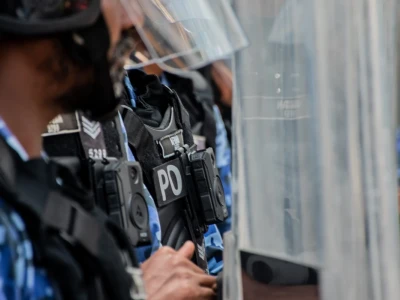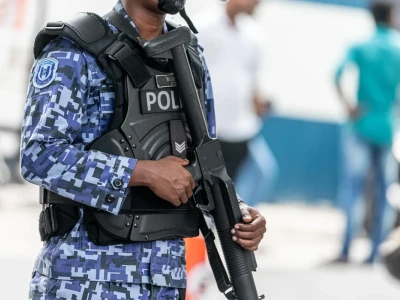
Amendment passed to allow 3-month detention without charges
With this, a person can be detained for up to three months without being levied charges.
Top Stories
By
Mohamed Muzayyin Nazim
Parliament on Monday has approved an amendment proposed by the government to allow the police to extend the remand period for investigating serious criminal cases by three months. If ratified by President Ibrahim Mohamed Solih, the amendment would allow people to be kept in detention for up to three months without being charged.
According to existing laws, the police will get to keep a suspect for a maximum of 75 days in major criminal cases, except terrorism cases. Earlier amendments to the Anti-Terrorism Act provided for a maximum of 90 days to investigate those arrested under it.
A bill submitted by Ihavandhoo MP Mohamed Shifau to amend the Criminal Procedure Code on behalf of the government was passed by the Judiciary Committee late last month with some changes. As per the committee's decision, the bill was passed on Monday.
The bill was passed with 56 votes in favour.
Prior to the passage of the Bill, the Criminal Procedure Code stipulated:
-
If a person is arrested in a case and produced before a judge for remand, he or she should be remanded to judicial custody within 30 days from that date and sent to the PG office.
-
Only 45 days are available to complete the investigation of a person released from custody and file a chargesheet.
-
Since the alleged offence is a cognizable offence and the nature of the case does not complete the investigation within 30 days, the PGs have the power to extend the period of investigation by a maximum of 45 days.
The government had sent the bill to parliament to extend the 45 days currently authorised by the PG to 60 days if the police wanted to prolong the investigation in such serious criminal cases. That's what the committee approved. With this, the committee has laid down a condition:
-
The PG may extend the period of investigation so that it does not exceed 15 days at a time
The amendment has been passed by the Parliament and from the day the President ratifies the bill, a maximum of three months can be allocated to the police to investigate major cases. With this, a person can be detained for up to three months without being levied charges.
Major criminal cases include:
-
Murder
-
rape
-
Child sexual abuse
-
Money laundering
-
Smuggling of drugs
-
Dangerous violence
-
Offences involving cash amounts ranging from MVR 100,000 to above
-
Every offence punishable with imprisonment for a term which may extend to 10 years
PG seeks order to impound passport
The next major change in the bill was to change the expressions for impounding passports in an alleged case to "ban the departure" and make them more elaborate. The bill also states that in cases where a chargesheet is sent to the PG office, such an order shall be sought by the PG office.
As of now, it is the police who have to approach the court for an order to impound the passport. If the PG office wants to do it, it has to be done through the police.
Some other aspects of the bill include:
-
Extension of time to file a complaint in the court to 15 days after a complaint is sent to the PG office; as per the law, the case has to be submitted to the court within 10 days of a complaint being sent to the PG.
-
In a major criminal case, if there is a possibility of the witness being threatened by the testimony given by the witness, he may approach the court seeking a restraining order or police protection.
-
The witness also has the right to request the state to approach the court for such an order.
-
Some cases in the High Court can be dealt with by even a single judge.




